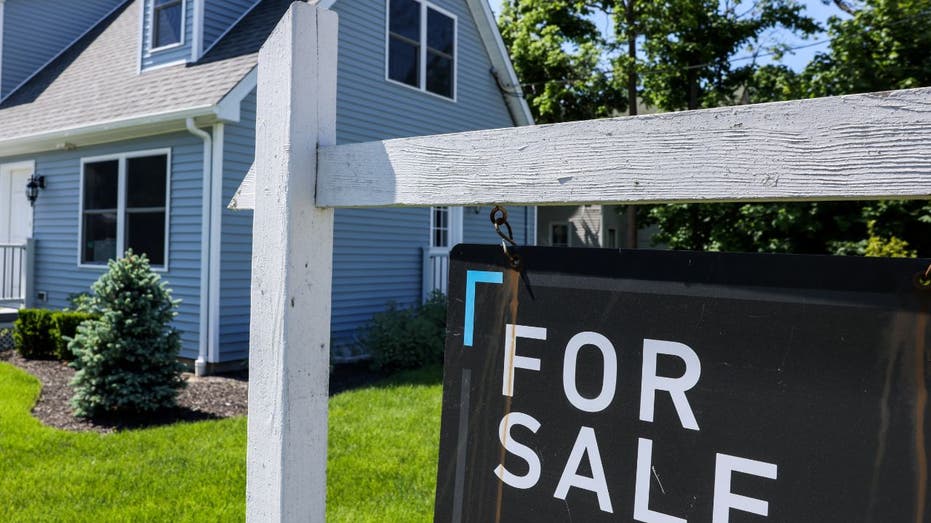U.S. military veterans are eligible for a wide range of benefits through the Department of Veterans Affairs (VA), with popular benefits ranging from healthcare to assistance funding higher education under the GI Bill, as well as VA home loans.
VA home loans allow veterans, service members and eligible surviving spouses to become homeowners with benefits to help them afford home loans on more beneficial terms.
The VA doesn’t require a down payment for VA home loans – though lenders may require down payments from certain borrowers using the VA’s guaranty. It also helps homebuyers obtain competitively low interest rates, keeps closing costs limited on the transaction and negates the need for private mortgage insurance.
VA home loan benefits are also available for the lifetime of an eligible borrower and the guarantee can be used multiple times.
OPENAI LAUNCHES FREE CHATGPT PROGRAM FOR TRANSITIONING VETERANS ENTERING CIVILIAN WORKFORCE
Private lenders, including banks and mortgage companies, provide VA loans to veterans and service members with the VA guaranteeing part of the loan – which allows the lender to provide the borrower with more favorable terms.
VA home loans aren’t only available for purchasers, as they can be used to reduce interest rates through refinancing and to purchase or modify homes to accommodate permanent and total service-connected disabilities.
To be eligible to obtain a VA loan, a veteran, service member or a qualified surviving spouse must obtain a certificate of eligibility (COE) from the VA or from their lender. Eligibility for specific benefits may vary based on length of service, duty status and character of service.
VETERANS OFFER UNTAPPED TALENT AMID ONGOING LABOR SHORTAGES, EXPERT SAYS

Members of the National Guard and Reserve may be eligible if they meet certain criteria, such as six years of service or 90 days of active duty, including at least 30 consecutive days of service under certain types of orders.
Veterans need to have a copy of their discharge or separation papers (DD214), whereas active duty service members must obtain a statement of service from their commander or personnel officer with details about their service and other personal information.
Surviving spouses of a veteran who died on active duty or had a service-connected disability can use the veteran’s discharge documents and have a separate process depending on whether they’re receiving dependency and indemnity compensation.
A report from the National Association of Realtors (NAR) and Realtor.com found that eligible veterans and service members are able to cut four years off the time it takes for them to save for a home purchase by using the VA’s zero down payment program.
LOWE’S LAUNCHES SKILLED TRADES ACADEMY FOR MILITARY MEMBERS AND SPOUSES
The researchers used data from NAR’s 2024 Profile of Home Buyers and Sellers and found that 74% of first-time VA loan users put zero down on their home purchase, whereas conventional first-time buyers had a median down payment of 12%.
When factoring in closing costs, a conventional buyer would need about $51,600 up front for a down payment on a typical $430,000 home that a VA loan buyer wouldn’t need, the report found.
Based on an annual gross income of $78,700 and a 15% savings rate, the study found that it would take about 4.4 years to accumulate the $51,600 amount for a down payment. A lower savings rate of 10% would stretch the timeline to 6.6 years, while saving at a 20% clip shortens it to 3.3 years.
“The standout benefit of a VA loan is the zero down payment but without the extra risk,” said NAR chief economist Lawrence Yun. “The lower upfront cost makes homeownership more attainable, especially in high-cost markets and amid elevated mortgage rates, giving qualified buyers a critical advantage and the ability to start building equity sooner.”
The NAR and Realtor.com report found that VA loans are underutilized in some areas, particularly in more expensive metro areas such as those in California and New York, where elevated prices, restrictions on the use of VA loans to buy co-ops, and limited awareness contribute to the benefit going untapped.
Areas near major military bases, such as Virginia Beach, Virginia, and Colorado Springs, Colorado, showed the highest utilization rates in the study.
Read the full article here
